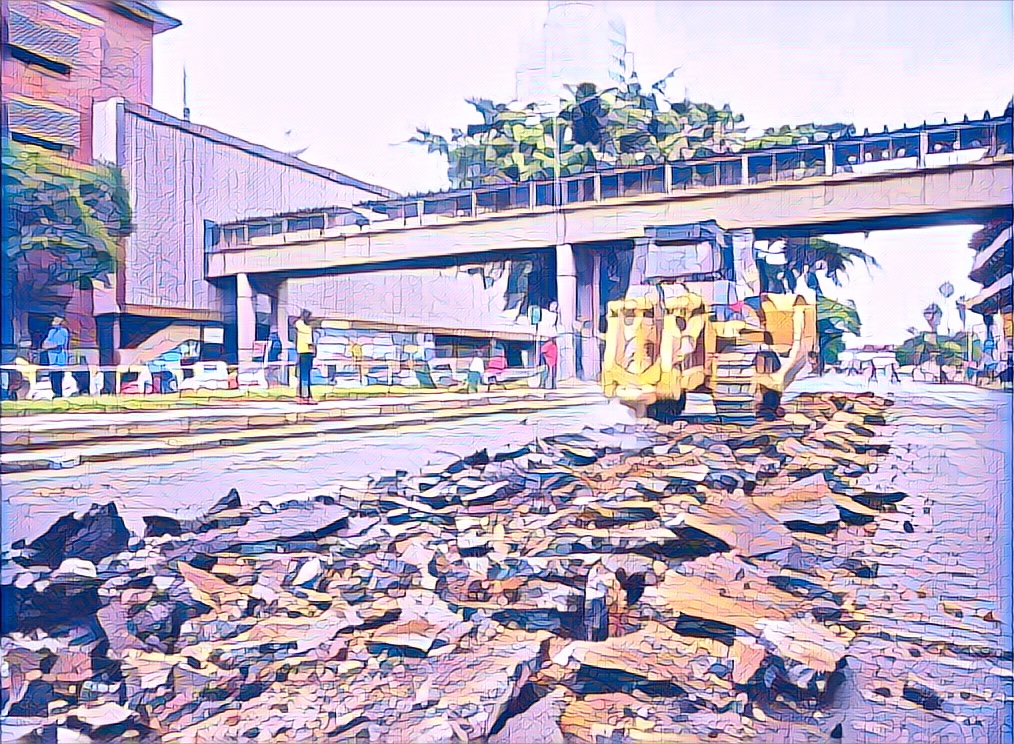As Zimbabwe prepares to host the 44th Southern African Development Community (SADC) Summit in August, the focus has shifted to the extensive road reconstruction projects specifically targeting routes to the new Parliament building in Mount Hampden, about 25 kilometers northwest of Harare. This move has ignited a debate about the government’s priorities amidst ongoing economic difficulties, with many critics accusing the administration of focusing on superficial improvements rather than addressing more systemic infrastructure needs.
The current road reconstruction effort, including the 25km stretch from Julius Nyerere Way via Bindura Road, is reportedly aimed at impressing delegates attending the upcoming summit. However, this has led to discontent among local residents, who see these efforts as neglecting essential road repairs in other parts of the city. The chosen roads, leading predominantly to luxury hotels and the main convention center, are receiving a facelift, while many other roads used daily by ordinary Zimbabweans remain riddled with potholes and in a state of disrepair.
The construction efforts have been concentrated on routes leading to luxury hotels and major venues, neglecting the myriad of roads plagued by potholes and years of decay. This approach has led to allegations of the government prioritizing appearances over substantial urban development.
Residents and commuters like Tinotenda Kichini, a pirate taxi driver, express frustration over the state of roads in residential areas like Waterfalls, contrasting sharply with the prioritized routes. The disparity in road conditions underscores a common perception among Zimbabweans that the government’s efforts are more about impressing international visitors than addressing the daily challenges faced by its citizens.
Economic professor Gift Mugano and political analyst Rashweat Mukundu have both criticized the government’s approach, arguing that the swift road repairs demonstrate Zimbabwe’s capability for rapid infrastructure improvement, yet such efforts are only mobilized under certain political conditions. They contend that the same urgency and resources should be applied uniformly across the country, especially in sectors critically in need like healthcare.
The focus on road repairs comes at a time when Zimbabwe is grappling with significant economic challenges, including a projected revenue shortfall due to a severe drought affecting the country’s agricultural output and fiscal space. The drought is expected to lead to a decrease in transactions across various sectors, impacting the tax base and potentially leading to a budget deficit of around US$3 billion or 10% of the GDP, according to Mugano.
In light of these challenges, critics argue that the government’s spending on road refurbishments for the SADC Summit is a misallocation of scarce resources. They advocate for a more balanced approach to national development that prioritizes long-term benefits for the population over short-term gains from hosting international events.
Despite the criticisms, Vice President Constantino Chiwenga has reported considerable progress in the road rehabilitation efforts and has encouraged private sector participation in the summit preparations. The government’s presentation to the cabinet highlighted that all projects are expected to be completed on schedule, contributing to the successful hosting of the summit.
In his 2024 National Budget, Finance Minister Mthuli Ncube allocated ZWL$1.2 trillion to the Transport Ministry for ongoing and new infrastructure projects, including roads, ports of entry, airports, and the revitalization of the National Railways of Zimbabwe. This allocation reflects the government’s broader infrastructure development goals, which, while commendable, are scrutinized for their selective execution and the quality of outcomes.
As Zimbabwe prepares to showcase its hospitality and organizational capabilities at the upcoming SADC Summit, the road repair projects in Harare have become a focal point of national debate. These efforts reveal the complexities of governance where public perception, economic challenges, and political priorities intersect. The situation calls for a reassessment of priorities to ensure that infrastructure developments are not only for show but lead to sustainable improvements that benefit all Zimbabweans.
Source: Newsday


